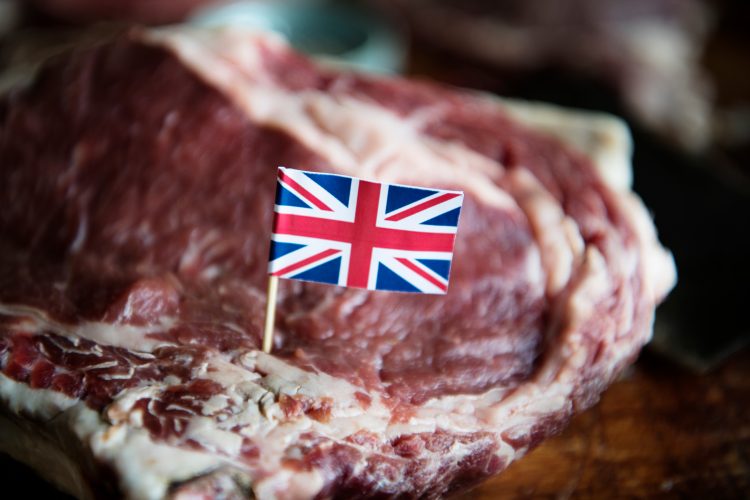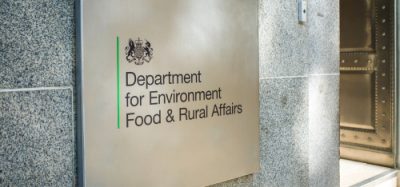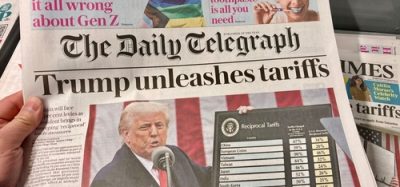The AIMS manifesto for a modern UK food chain
- Like
- Digg
- Del
- Tumblr
- VKontakte
- Buffer
- Love This
- Odnoklassniki
- Meneame
- Blogger
- Amazon
- Yahoo Mail
- Gmail
- AOL
- Newsvine
- HackerNews
- Evernote
- MySpace
- Mail.ru
- Viadeo
- Line
- Comments
- Yummly
- SMS
- Viber
- Telegram
- Subscribe
- Skype
- Facebook Messenger
- Kakao
- LiveJournal
- Yammer
- Edgar
- Fintel
- Mix
- Instapaper
- Copy Link
Posted: 20 June 2024 | Jason Aldiss | No comments yet
With the UK general election drawing closer, AIMS’ Jason Aldiss advocates for modernised food regulations, improved technologies, and streamlined oversight to support the UK’s meat industry and consumer safety.


By Jason Aldiss, Head of External Affairs at the Association of Independent Meat Suppliers (AIMS)
In an industry where safety, quality, and efficiency are paramount, the Association of Independent Meat Suppliers (AIMS) has emerged as a beacon of common sense and practicality. With the upcoming UK general elections on the horizon, AIMS presents a manifesto that not only champions the meat industry but also advocates for a radical overhaul of our outdated food regulatory system.
As the UK’s leading trade body representing the meat industry, including poultry, red meat, and food service, AIMS remains steadfastly apolitical. Our mission is to advocate for policies that support the meat industry, promote food safety, and protect British consumers and producers.
AIMS calls for the creation of a single, cohesive regulatory body that oversees the entire food chain from farm to fork. This will replace the current fragmented system involving multiple quangos and agencies that fail to deliver effective and efficient regulation. By consolidating regulatory oversight, we can ensure more streamlined processes, better communication, and a higher standard of food safety and animal welfare. Furthermore, the current veterinary control regime is based on science that is over 120 years old and is no longer suitable for addressing today’s food safety threats. AIMS advocates for a complete overhaul to modernise these controls, ensuring they are relevant and effective for contemporary food safety challenges, particularly those posed by modern supply chains and processing technologies.
We urge the government to cut unnecessary bureaucracy and reduce regulatory burdens on the meat industry. This will not only improve efficiency and assurance but also allow businesses to thrive without being weighed down by outdated and redundant regulations. In order to achieve this AIMS supports the establishment of a veterinary agreement with the EU to reduce costs and waste, and improve regulatory assurance. Such an agreement would facilitate smoother trade, lower the cost of compliance for exporters, and ensure that the high standards of British meat are recognised and accepted in European markets without the need for pointless burdensome certification requirements.
We propose the use of advanced technologies throughout the food chain to minimise waste, enhance regulatory oversight, and reduce costs. Innovations such as blockchain for traceability, transparency and data security, automated quality control using Machine Learning and AI, and data analytics for better decision-making can transform the industry and the regulatory process into a much more efficient and sustainable system. An important part of this modernisation process is the call from AIMS for the modernisation of control systems across the meat industry using appropriately qualified staff. This includes employing professionals with experience in delivering official controls in abattoirs, rather than relying on underqualified veterinarians simply to tick a regulatory ‘box’ – the regulator must be able to add value to the process not simply be physically present. This approach will ensure that standards are not merely maintained but enhanced for the ultimate benefit of the UK consumer – or should I say constituent?
The UK’s agri-livestock sector is a crucial contributor to the national economy, providing jobs and high-quality food. AIMS calls for policies that support this sector, ensuring it remains competitive and sustainable in the face of global challenges. We need real investment into the sector for the wider benefit of UK plc not just for the oft touted purpose of “food security” – the agri-livestock sector can be the ‘engine’ that drives the UK back to prosperity if it were properly supported by Government.
As part of this call for support AIMS is committed to protecting British consumers from imports of animal-related food products that do not meet the UK’s high welfare and hygiene standards. We advocate for stringent import regulations that prevent lower-quality products from undermining the integrity of the British food supply. Furthermore, if we don’t have the people to work in the sector then how can it thrive? We call for substantial investment in the educational sector to promote apprenticeships and training programs that prepare British workers for careers in the agri-livestock industry. By building a skilled workforce, we can support the future growth and sustainability of the sector.
Post-Brexit, numerous quangos such as the Food and Export Council have been created, leading to unnecessary complexity. AIMS proposes the establishment of a single, effective commission to promote British exports of food of animal origin, streamlining efforts to boost international trade and open new markets. If we do not learn from history then our future is bleak – just because it is new doesn’t make it better.
Episode 50: Is Brexit working for the meat sector? With Nick Allen
The AIMS manifesto is a clarion call for the Food Standards Agency (FSA) and other regulatory bodies to wake up and smell the coffee. The regulations require Food Business Operators to produce good, safe, and wholesome meat – and why wouldn’t they? They have a vested interest in producing the best they can. So why does the FSA spend so much time over-regulating the meat industry?
The role of the vet in the food chain should be from farm to fork, with controls placed at the highest risk points, such as food preparation in restaurants and kitchens. Why waste resources in abattoirs when we know the food is going to be cooked? We must reengineer the regulatory system to produce a modern, effective, and science-based system that adds value and provides the best consumer protection – not an outdated method based on ideas from Germany 120 years ago. Technology and innovation are essential to ensuring the UK creates a world-leading food regulatory system.
Brexit was an opportunity for the UK to deliver tangible benefits in terms of food chain regulation. Instead, it has resulted in more regulation, less control, increased regulatory burden, and higher costs. The UK should harness the benefits of independence from the EU to deliver a better form of food regulation based on science and modern thinking. The next government needs to put UK consumers first, not simply bow to regulatory pressure from the EU, damaging the UK’s industry, agri-livestock sector, and putting UK consumers at risk.
The Association of Independent Meat Suppliers is committed to these principles and will continue to advocate for policies that benefit the meat industry, support the UK economy, and ensure the highest standards of food safety and quality for British consumers. It’s time for a change. It’s time for a modern, efficient, and effective regulatory system that truly serves the interests of the UK and its people.
About the author


Related topics
Environment, Food Safety, Processing, Recruitment & workforce, Regulation & Legislation, Trade & Economy
Related organisations
Association of Independent Meat Suppliers (AIMS), Food Standards Agency (FSA)









